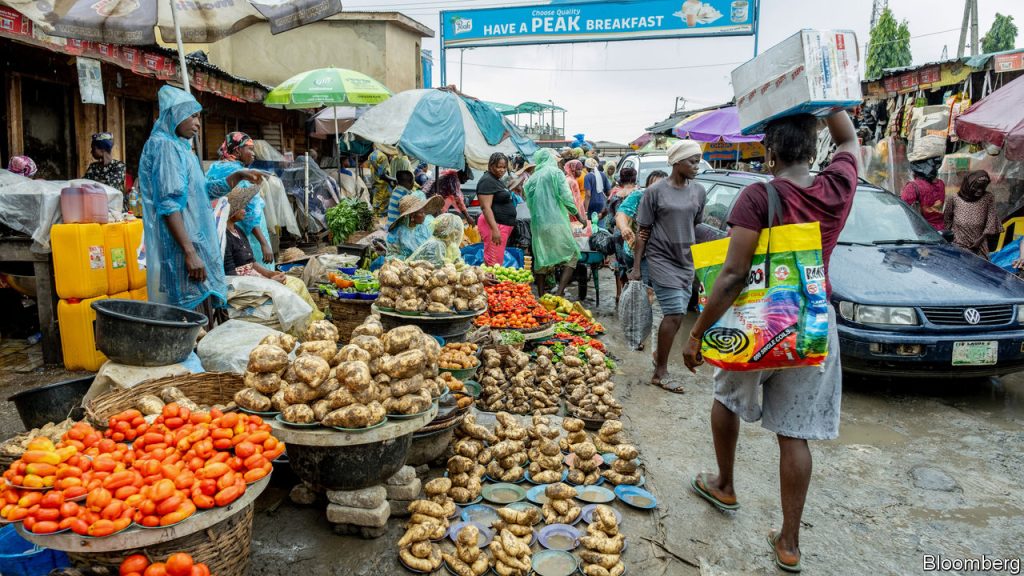IMF Sounds Alarm on Nigeria’s Fragile Economy and Persistent Poverty
The International Monetary Fund (IMF) has issued a stark warning about Nigeria’s fragile economic outlook, highlighting the persistent rise in poverty and food insecurity. In Africa’s most populous nation, home to 222 million people, recent reforms have yet to ease the burden on millions. This comes as Nigeria faces global economic pressures, soaring inflation, and internal challenges that threaten progress. The IMF’s concerns, detailed in its 2024 Article IV Consultation, signal an urgent need for action to stabilize the economy and uplift its people.
A Stagnating Economy Amid Reforms
Nigeria, often called West Africa’s economic giant, has struggled with slow growth for a decade. The IMF notes that real GDP growth fell to 2.9 percent in 2023, hampered by a 14 percent drop in the hydrocarbon sector. Per-capita income has barely budged since the COVID-19 recession. Poverty affects 46 percent of Nigerians, with 19 million facing food insecurity. These numbers reveal a harsh truth: economic policies are not yet improving lives for most citizens.
President Bola Tinubu’s administration has pushed bold reforms, such as removing fuel subsidies and unifying foreign exchange rates. These steps aim to stabilize the economy but have driven up prices. Inflation hit 32 percent in February 2024, with food prices soaring to 38 percent. The cost-of-living crisis has sparked unrest, including looted food warehouses and rising kidnappings. While reforms are necessary, their immediate impact has been painful for many.
Security and Climate Threats to Food Security
Security issues in northern Nigeria have crippled agriculture, a vital sector. Violence has left 25 million Nigerians food insecure, or 13 percent of the population. Climate change worsens the situation, with erratic weather disrupting harvests. Once contributing 40 percent to GDP in the 1970s, agriculture now accounts for just 20 percent. This decline reflects Nigeria’s reliance on oil, which leaves it exposed to global price swings.
The IMF highlights the ripple effects of these challenges. High food prices strain household budgets, particularly for the poorest. In markets across Lagos and Kano, vendors like Aisha, a mother of three, struggle to make ends meet. “Prices keep rising, but my earnings don’t,” she said. The government has released grain reserves and subsidized fertilizers, but these measures have not fully eased the crisis.

Signs of Progress Amid Uncertainty
Despite the gloom, there are pockets of resilience. Non-oil sectors like financial services and agriculture grew by 4 percent from 2021 to 2023. The government aims to boost oil production and improve dry-season farming to enhance food security. The Central Bank of Nigeria has tightened monetary policy, raising interest rates to curb inflation, projected to fall to 24 percent by late 2024. Social cash transfer programs have also been expanded to support vulnerable households.
Yet, the IMF warns of significant risks. Gross international reserves dropped to $33 billion in 2023, covering just five months of imports. The naira’s depreciation after exchange rate reforms has strained finances, though recent interventions have stabilized it. Global food prices, driven by conflicts, remain a threat. External financing is limited, leaving Nigeria with little room to absorb economic shocks.
IMF’s Roadmap for Recovery
The IMF urges Nigeria to stay the course on reforms while addressing immediate needs. A tight monetary policy is essential to reduce inflation. Fiscal savings from subsidy cuts should fund priority areas like health and education. Social safety nets must be strengthened to protect the vulnerable. The IMF also calls for a unified exchange rate to attract investment and structural reforms to boost agriculture and tackle insecurity.
These steps require careful planning to avoid further unrest. Axel Schimmelpfennig, the IMF’s mission chief, emphasized the “significant uncertainty” in Nigeria’s outlook. Global risks, such as lower oil prices, add pressure. Historical data offers some hope: between 1985 and 1992, poverty fell from 43 percent to 34 percent due to growth. But income inequality, which limited those gains, remains a challenge today.
A Nation at a Crossroads
For Nigerians, the IMF’s warnings reflect daily realities. In bustling markets, families grapple with the rising cost of staples like rice. Policymakers, including Finance Minister Wale Edun and CBN Governor Yemi Cardoso, face a delicate balancing act. They must stabilize the economy while addressing public discontent. Expanding cash transfers and infrastructure investment is promising, but scaling these efforts amid tight budgets is daunting.
As Nigeria prepares its 2025 budget, the IMF’s call for a neutral fiscal stance gains urgency. The nation must navigate global economic challenges, from volatile oil prices to rising interest rates. The IMF’s support, including technical assistance on governance, signals a commitment to Nigeria’s potential. However, success depends on policies that prioritize both growth and the well-being of citizens.
Nigeria’s story is one of resilience and untapped potential. The IMF’s sobering assessment serves as a wake-up call, urging leaders to bridge the gap between reform and relief. For a country rich in resources and spirit, the path to prosperity is clear but demands bold, inclusive action. The stakes are high, and the time to act is now.

